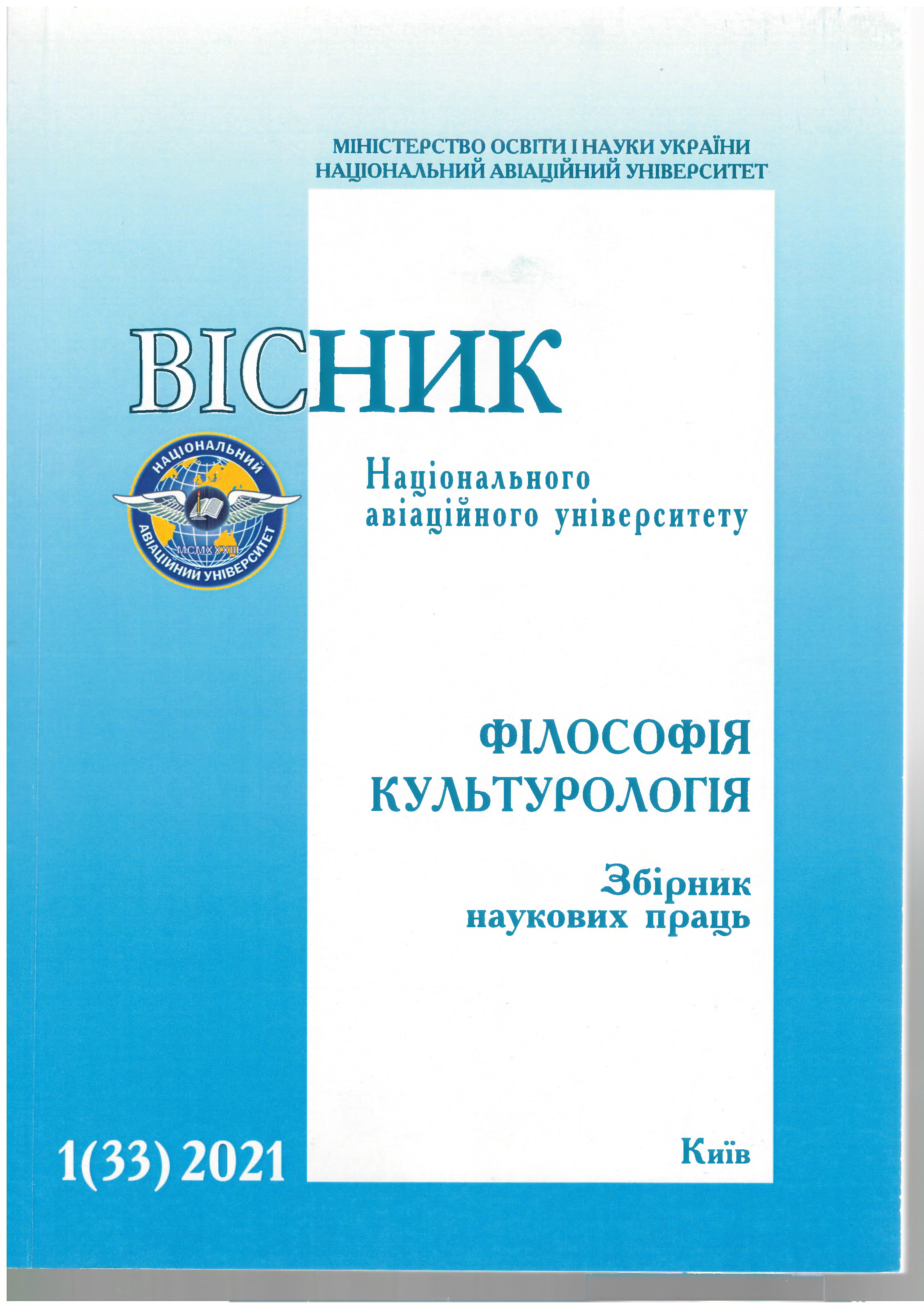CONCEPTUAL SPHERE OF A PROPER NAME IN THE ANTIQUE PHILOSOPHICAL TRADITION
DOI:
https://doi.org/10.18372/2412-2157.33.15633Keywords:
proper name, concept, nomination «by nature», nomination «by convention», anthroponomical,, transcendentalAbstract
Introduction. Proper names permeate all the spheres of our existence: social, historic, cultural, religious, commercial, etc. The great
significance acquires ramified system of knowledge about this phenomenon. In such a context, an appeal to the heuristic potential of the classical tradition, to discourse seems quite pertinent. The aim and tasks are to analyze a Proper name as a conceptual sphere; to outline the main nominative directions within the paradigms of classical philosophy; to evaluate the empiric and theoretical potential of such an experience in an anthroponomical context and in defining the contours of this phenomenon. Research methodology is the system analysis approach to a Proper name, formed on the grounds of a classical philosophical interpretation of this problem (Plato, Aristotle, Plotinus) in a wide range of epistemological contexts. Research results. In Europe scientific approach to this problem developed within the frames of mythological and esoteric traditions. Here originated two oppositional directions connected with the problems of nomination (phusei / thesei) and correspondence of names to the essence of things. Despite their controversy, both contributed greatly to a deep understanding of anthroponomy, its content, and the process of nomination. Discussion finds its all-around interpretation in dialogues of Plato, who regarded these problems from the point of view of Hermeneutics, differentiating the «primary» names, given by God power, and «secondary» ones, given by people. Aristotle also considered this differentiation «by nature»/ «by convention» to belong to Hermeneutics, which he connected with Logic. For Plotin the names were the «traces of Spirit», which had natural embodiment. Conclusion. This discussion as to the character of nomination and the relations between denomination and denominated turns the Proper name into the concept, which includes both ontological and epistemological characteristics. The experience of such a discursive transformation becomes topical in the periods of ideological, political, and moral-ethical confrontation concerning proper names.
References
W. Emerson. – N.Y. : Penguin Books, 1985. – P. 259-284.
Gadamer H.-G. The nature of things and the language of things /
Gadamer H.-G. Philosophical Hermeneutics / H.-G. Gadamer / transl.
and edited by D. E. Linge. – University of California Press, 1977. – P. 69-82.
Jespersen O. Language. It’s nature, development and origin / O.
Jespersen – N.Y.: The Norton Library, 1964. – 448 p.
Solomonick A. A. Theory of general Semiotics: The science of
signs, sign-systems, and Semiotic reality. English editor L. Schwartz / A.
A. Solomonick– Cambridge scholar publishing, 2015. – 398 p.
Аристотель. Метафизика / А ристотель. С очинения: в 4 т. /
Аристотель. – Москва: Мысль, 1976. – Т. 1. – С. 65-448.
Аристотель. Об истолковании / Аристотель. Сочинения: в 4
т. / Аристотель. – Москва: Мысль, 1978. – Т. 2. – С. 93-531.
Горенко О. П. Антропонімічний вимір американського роман-
тизму. Монографія. Інститут філології КНУ імені Тараса Шевченка /
О. П. Горенко. – Київ: ТОВ «ПанТот», 2008. – 312 с.
Гурко Е. Н. Божественная ономатология: Именование Бога в
имяславии, символизме и деконструкции / Е. Н. Гурко. – Минск:
Изд. центр «Экономпресс», 2006. – 445 с.
Кассирер Э. Философия символических форм: в 2-х
т. / Э. Кассирер. – Москва-Санкт-Петербург: Универс. кни-
га, 2001. – Т. 1. Язык. – 270 с.
Кассирер Э. Философия символических форм: в 2-х т. / Э.
Кассирер. – Москва-Санкт-Петербург: Универс. книга, 2001. – Т. 2.
Мифологическое мышление. – 279 с.
Квіт С. Виміри філософської герменевтики /С. Квіт //Слово і
час. – 2007. – № 5.– С. 17-27.
Лосев А. Ф. Жизненный и творческий путь Платона. Вступ
ст. / А. Ф. Лосев. – Москва: Мысль, 1990. – Т. 1. – С. 3-69.
Лосев А. Ф. Формы субъективно-человеческого функцио-
нирования объективно-реальной идеи – вещь, тип-образец, имя /
Платон. Собр. соч.: в 4-х т. / А. Ф. Лосев. – Москва: Мысль, 1990. –
Т. 1. – С. 826-835.
Платон. Кратил / П латон. С обр. с оч. в 4-х т. / П латон. –
Москва: Мысль, 1990. – Т. 1. – С. 613-681.
Платон. Парменид / Платон. Собр. соч. в 4-х т. / Платон. –
Москва: Мысль, 1993. – Т. 2. – С. 346-412.
Плотин. Эннеады / Плотин. – Киев: УЦИММ-ПРЕСС-ИСА,
– 394 с.
Соломоник А. Философия знаковых систем и язык / А. Со-
ломоник – Минск: МЕТ, 2002. – 408 с.
Тахо-Годи А. А. Примечания к диалогу «Кратил» / А. А. Та-
хо-Годи / Платон. Собр. соч. в 4-х т. – Москва: Мысль, 1990. – Т. 1.
– С. 835-842.
Эпштейн М. Предлог «В» как философема. Частотный
словарь и основной вопрос философии / М. Эпштейн // Вопросы
философии. – 2003 – № 6 – С. 86-95.
Яковлев В. А. Философия творчества в диалогах Платона /
В. А. Яковлев // Вопросы философии. – 2003. – № 6. – С. 142-154.

